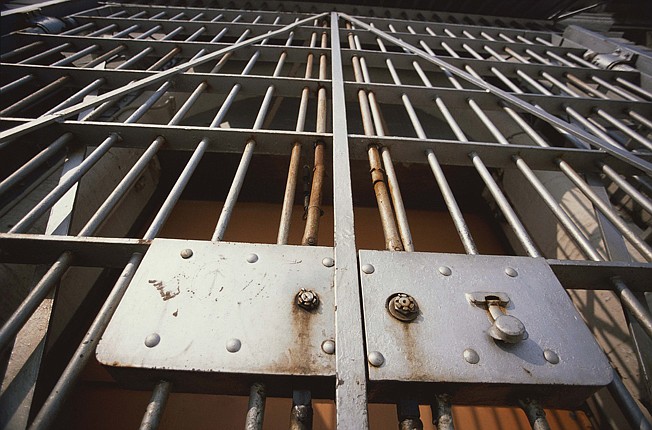TEXARKANA, Texas - Lawyers continue to spar over the public filing of records, documents and jailhouse surveillance recordings in civil lawsuits stemming from the deaths of Bowie County jail inmates.
Texarkana lawyer David Carter and Seattle, Washington, lawyer Erik Heipt complain that lawyers for LaSalle Corrections are attempting to obscure the cases involving the deaths of Holly Barlow-Austin and Franklin Greathouse from public scrutiny.
None of the lawyers in the cases were available for comment Friday.
Barlow-Austin was an HIV positive woman who died in June 2019 in a local hospital just days after being transported from the Bowie County jail. A civil suit filed by Heipt and Carter in September 2020 alleges she was denied prescribed medications and lost her vision as a result of an untreated infection. While unable to see, Barlow-Austin allegedly was denied food, water and medical care.
Jail staff allegedly falsified cell check logs and waited until it was too late to take Barlow-Austin to a hospital.
Falsified documentation by jail staff and denial of medical care are also alleged in a suit filed in January on behalf of Greathouse's daughter and estate.
Greathouse was found unresponsive in his cell after complaining to medical staff earlier in the day that he had a seizure.
Carter and Heipt argue in court filings that LaSalle is designating filings and exhibits as confidential to hide their alleged misconduct from the public. Included in some of LaSalle's confidential designations are video recordings of Barlow-Austin in a medical observation cell and inmate files, which are routinely produced in response to open records requests.
The video of Barlow-Austin, which LaSalle states represents a security risk, has been widely published in local and national media and many of the documents LaSalle seeks to keep under seal are publicly available.
"Defendants' attempt to conjure up a new 'safety/security' category of protected information has nothing to do with security and safety in the Bi-State Jail, but everything to do with improperly controlling information surrounding Greathouse's death," a filing by Carter in the Greathouse case states.
"As this Court is well aware, the issues presented in these cases implicate fundamental principles of our society and our judiciary. Open government and the general rejection of state secrecy is a bedrock of American democracy."
Carter and Heipt point to earlier cases against LaSalle in the 2015 death of Michael Sabbie and 2016 death of Morgan Angerbauer. Video and inmate files were released in those cases and no complaint about their public disclosures was made to the court by LaSalle.
In a recent filing in the case involving Barlow-Austin's death, Heipt points out that LaSalle did not object to the video footage linked in the original complaint for 11 months.
"None of the defendants objected to the linked exhibits in either of the amended complaints, expressed any jail security concerns about them, or requested that they be sealed," the brief states. "When cases entail matters of genuine public concern, such as civil rights cases involving constitutional misconduct or issues important to public health and safety, the rationale for secrecy is substantially diminished."
Heipt's filing in Barlow-Austin's case refers to case law that deals with information already in the public domain. The brief argues that courts have found in other cases that once material is publicly available, it cannot be sealed in court.
"The genie is out of the bottle," Heipt's brief states. "The cat is out of the bag. And the horse has left the barn. The court cannot put the toothpaste back in the tube."
Heipt notes that the video footage he received of Barlow-Austin in the medical observation cell without complaint from Bowie County has been in the public for approximately a year and footage of Morgan Angerbauer in the exact same cell has been on the internet since 2016.
"The bottom line is that if public disclosure of the videos posed any true security concerns, why did LaSalle provide them to Bowie County without instructions to keep them confidential? Why did Bowie County produce them pursuant to a public records request with no mention of safety or security-related concerns and zero restrictions on their use," the brief in the Barlow-Austin case states.
LaSalle filed an affidavit in the case involving Barlow-Austin's death from a former warden that was not filed in the case concerning Greathouse.
"In support of their motion, Defendants provide a comically absurd declaration from former Bi-State Jail Warden James McCormick. The declaration contains generalized statements that disclosure of the video footage would jeopardize 'the security of jail officials and inmates alike' and put them 'at risk' both 'in and outside' the jail-without offering any rational explanation for hisstatements," the brief states.
Both cases are currently pending before U.S. District Judge Robert Schroeder III in the Texarkana Division of the Eastern District of Texas.

